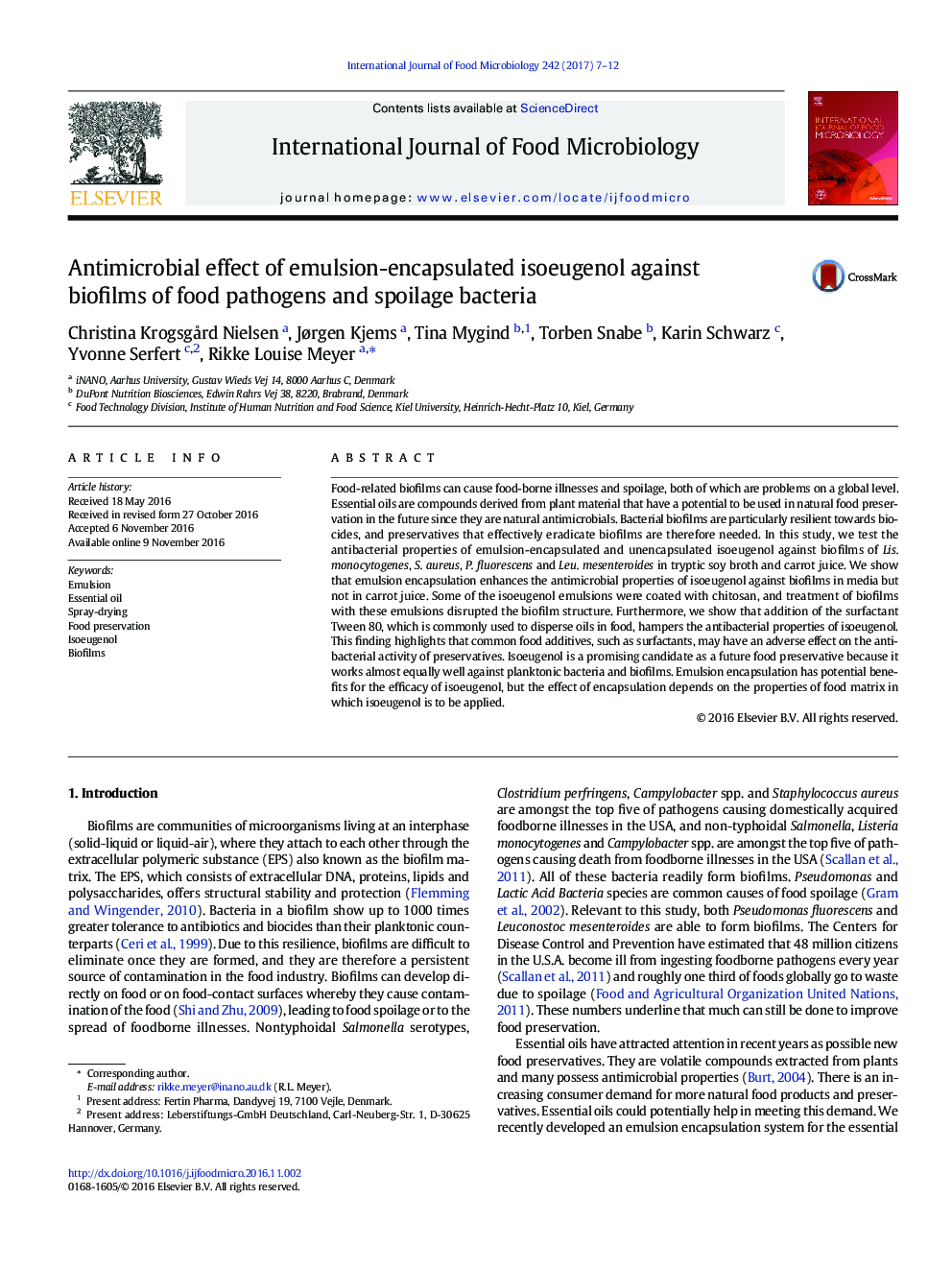| کد مقاله | کد نشریه | سال انتشار | مقاله انگلیسی | نسخه تمام متن |
|---|---|---|---|---|
| 5740932 | 1616541 | 2017 | 6 صفحه PDF | دانلود رایگان |
- Emulsion encapsulation of isoeugenol enhanced the antibacterial efficacy in media.
- Isoeugenol had similar efficacy against biofilms and planktonic bacteria.
- Chitosan-coating of emulsions resulted in disruption of biofilm structure.
- Tween 80 hampered the antibacterial efficacy of isoeugenol.
Food-related biofilms can cause food-borne illnesses and spoilage, both of which are problems on a global level. Essential oils are compounds derived from plant material that have a potential to be used in natural food preservation in the future since they are natural antimicrobials. Bacterial biofilms are particularly resilient towards biocides, and preservatives that effectively eradicate biofilms are therefore needed. In this study, we test the antibacterial properties of emulsion-encapsulated and unencapsulated isoeugenol against biofilms of Lis. monocytogenes, S. aureus, P. fluorescens and Leu. mesenteroides in tryptic soy broth and carrot juice. We show that emulsion encapsulation enhances the antimicrobial properties of isoeugenol against biofilms in media but not in carrot juice. Some of the isoeugenol emulsions were coated with chitosan, and treatment of biofilms with these emulsions disrupted the biofilm structure. Furthermore, we show that addition of the surfactant Tween 80, which is commonly used to disperse oils in food, hampers the antibacterial properties of isoeugenol. This finding highlights that common food additives, such as surfactants, may have an adverse effect on the antibacterial activity of preservatives. Isoeugenol is a promising candidate as a future food preservative because it works almost equally well against planktonic bacteria and biofilms. Emulsion encapsulation has potential benefits for the efficacy of isoeugenol, but the effect of encapsulation depends on the properties of food matrix in which isoeugenol is to be applied.
Journal: International Journal of Food Microbiology - Volume 242, 2 February 2017, Pages 7-12
